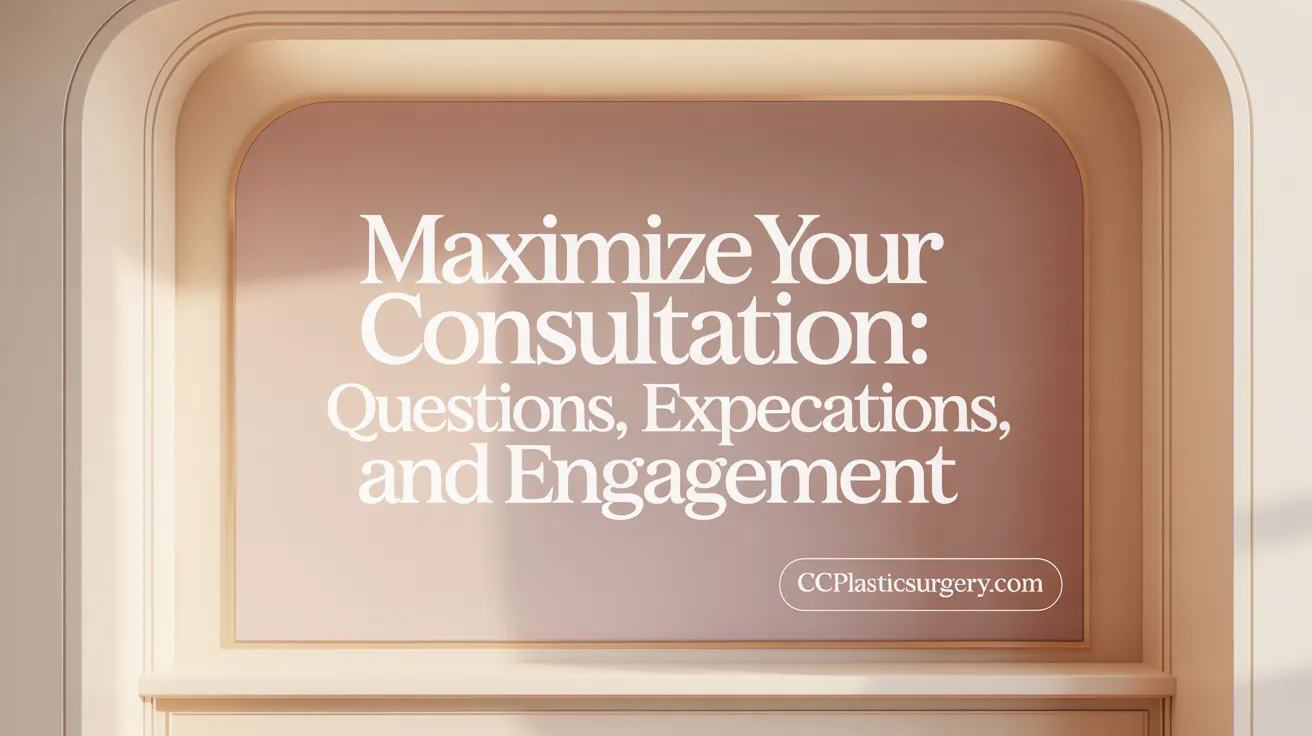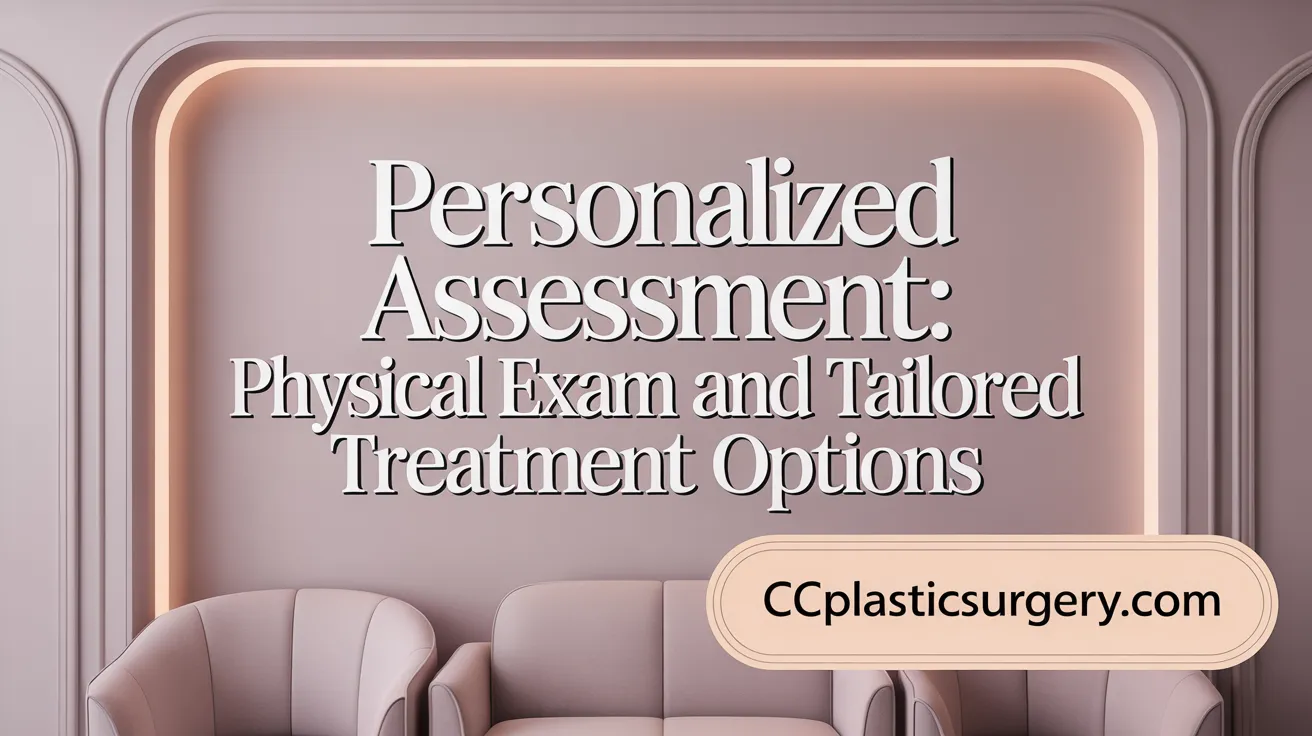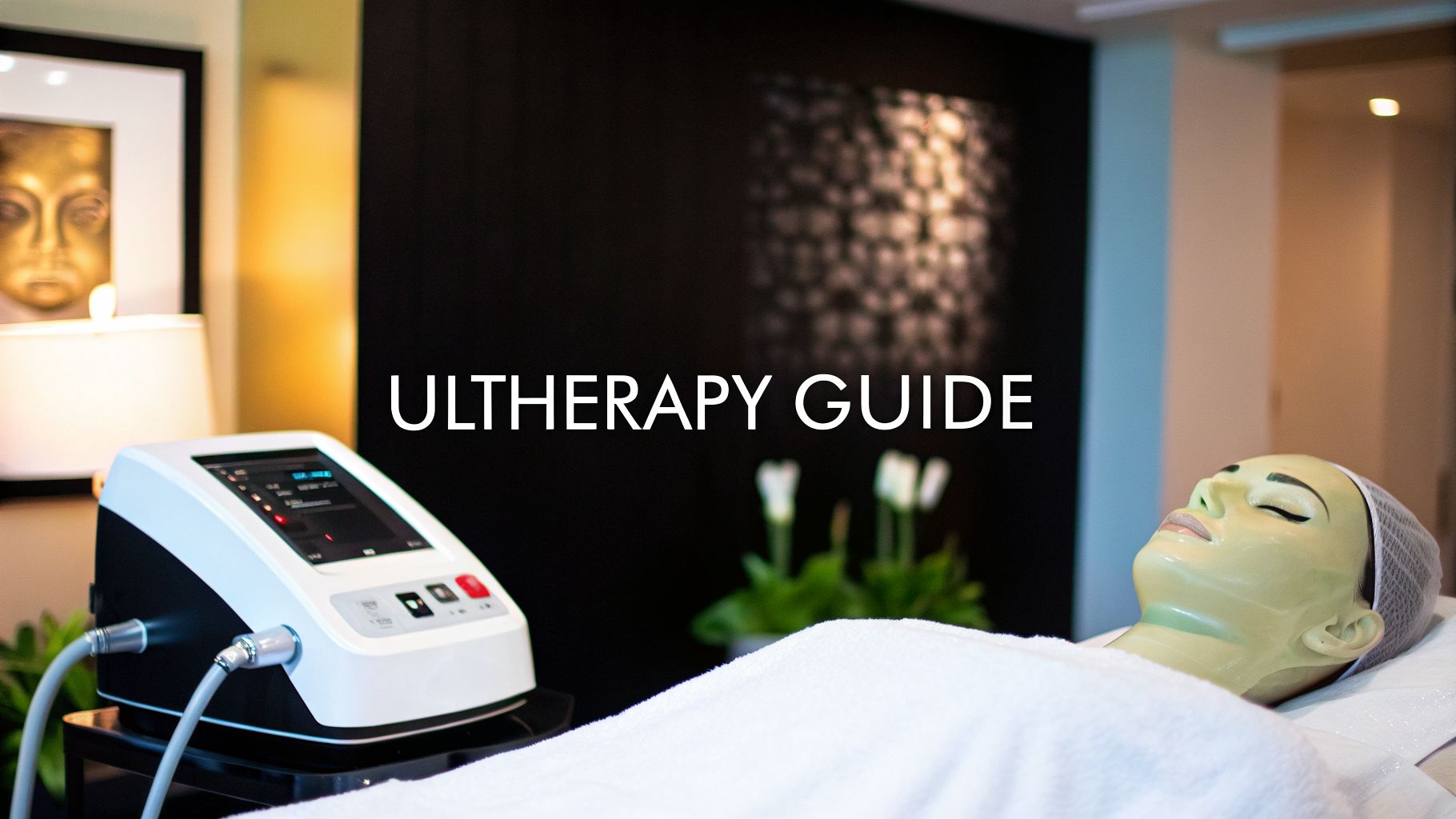
February 21, 2026
How to Prevent Keloid Scars After Surgery A Definitive Guide
Discover how to prevent keloid scars after surgery with our definitive guide. Learn expert strategies for risk assessment, surgery, and post-op scar care.
Oct 31, 2025

Your first plastic surgery consultation is a foundational step on the path to achieving your aesthetic goals. This appointment is a unique opportunity to discuss your expectations, understand available procedures, evaluate potential surgeons, and establish a trusting patient-provider relationship. Preparing thoroughly for this meeting enhances communication and ensures you make informed decisions aligned with your health and beauty aspirations.

Preparing well before your first plastic surgery consultation can make the experience more informative and less stressful. Start by researching plastic surgery procedures so you understand the techniques, expected results, and typical recovery times. Equally important is checking the surgeon’s credentials—look for board certification by the American Board of Plastic Surgery to ensure they have the proper training and qualifications.
Organize your medical history carefully. This includes past surgeries, current health conditions, medications, and supplements you take. Bringing this information to your consultation can help your surgeon assess your candidacy and safety for the procedure. See guidance on preparing for your plastic surgery consultation.
Prepare a thoughtful list of questions for your surgeon. Important topics to cover are the surgeon’s experience with the procedure, risks and complications, recovery process, anesthesia type, and financial details including costs and payment options. Refer to questions to ask your plastic surgeon and the consultation checklist.
On the day of your consultation, dress comfortably and in clothing that allows easy access for physical examination. Bringing a trusted friend or family member can provide emotional support and help you remember key information discussed. See what to wear to a cosmetic surgery consult and bringing a support person.
For reliable information, the American Society of Plastic Surgeons (ASPS) and the American Board of Plastic Surgery websites are excellent resources. They list board-certified plastic surgeons and offer accurate procedural information.
Personal recommendations from friends or healthcare professionals also help identify trusted surgeons. While online searches and social media platforms can offer additional insights, they should never be your only source for making a selection. Learn about using personal recommendations and social media for research.
Verifying surgeon certifications and hospital affiliations through official channels assures quality and safety. This combination of thorough research and preparation will help you enter your consultation informed and confident. See the importance of surgeon credentials and hospital affiliations.

The consultation usually lasts about one to two hours. It begins with a thorough review of your medical history, current medications, which helps the surgeon assess your overall health and suitability for the procedure. You'll likely change into a robe for a physical exam, where the surgeon evaluates the specific areas you want treated.
During this time, the surgeon discusses your aesthetic goals and explains available procedures, including benefits, potential risks, and the expected recovery timeline. Visual aides like 3D imaging or photographs of before-and-after results may be used to help you understand what to expect. Detailed information on anesthesia choices, the surgical facility accreditation standards, and the qualifications of the staff involved will also be provided.
To make the most of your consultation, prepare important questions such as:
Pay attention to how the surgeon communicates — a good surgeon listens carefully, explains clearly, and makes you feel comfortable discussing your concerns and expectations. The physical exam and discussion should be personalized to your needs, with the surgeon showing professionalism and an understanding of your goals. See tips for effective patient-surgeon communication.
You should review before-and-after photos of patients with similar concerns to get a realistic idea of results. The surgeon should tailor a treatment plan based on your medical history, physical exam, and personal goals, outlining feasible outcomes and next steps. Learn more about tailored treatment planning during consultations.

The surgeon begins with a detailed physical examination focusing on skin elasticity, facial or body structure, and the specific areas you want to improve. Measurements and photographs might be taken to guide planning. This evaluation, combined with your medical history and personal goals, allows the surgeon to recommend surgical or non-surgical treatments tailored precisely to your needs. Some clinics use advanced imaging technologies such as 3D modeling software, which helps visualize potential results and supports you in making informed decisions (facial cosmetic surgery consultation).
During the consultation, your surgeon will set realistic expectations about the outcomes, noting that results vary among individuals and evolve over time. Recovery timelines depend heavily on the complexity of the chosen procedure, ranging from minimally invasive treatments with quick healing to major surgeries with longer downtime. You will be educated about post-operative care, including activity restrictions and follow-up visits, and the importance of following medical guidelines to achieve the best possible results (plastic surgery recovery timeline).
Your surgeon will present a range of options—from surgical procedures like facelifts or body contouring to non-surgical treatments like injectables or laser therapies—based on your assessment. They will customize the approach to suit your physical condition and aesthetic desires, ensuring the plan is both safe and effective (cosmetic surgery consultation tips).
Clear communication helps ensure your goals align with achievable outcomes. The surgeon will clarify possible risks, benefits, and timelines so you understand what to expect before, during, and after your procedure (questions to ask a plastic surgeon).
This comprehensive assessment and discussion phase establishes a foundation of trust and knowledge, preparing you for a safe and satisfying plastic surgery experience (successful cosmetic surgery consultation.

Consultation fees for plastic surgery typically range from $120 to $500. Often, this fee can be credited towards the surgery cost if the procedure is booked within a specified time frame, such as 90 days. The overall surgery cost includes multiple components: surgeon's fees, anesthesia charges, operating room or facility fees, costs of implants or devices, and post-operative care expenses. It is critical to request a detailed breakdown of these costs to understand what is included and any potential additional fees.
Many plastic surgery practices offer financing options to help patients manage the cost, with CareCredit financing for plastic surgery being a popular choice. Financing helps spread payments over time with installments, making procedures more accessible. Patients should clarify payment schedules, understand when deposits are required, and verify if full payment is due before surgery. Transparent communication about these details helps avoid surprises and ensures financial preparedness. For more details on financing options for cosmetic surgery, consult trusted resources.
Before scheduling surgery, discuss the deposit requirements and cancellation policies with the surgical office. Some surgeons require deposits to secure surgery dates, which may or may not be refundable depending on timing and individual policies. Understanding refund procedures and any penalties for cancellations is crucial for planning and peace of mind. Guidance on this can be found in plastic surgery consultation tips.
After deciding to proceed post-consultation, the next steps include scheduling your surgery date and arranging pre-operative appointments. Pre-op visits typically involve further health evaluations, lab tests if needed, detailed instructions on preparation such as fasting or medication adjustments, and discussions about recovery logistics. Arranging transportation for the day of surgery and having support at home afterward are important planning elements. See preparing for your consultation and surgery for comprehensive preparation details.
It is highly recommended to meet with multiple qualified surgeons before committing to surgery. Comparing different surgeons’ expertise, surgical approaches, fees, and surgical facility accreditation standards helps you make an informed decision you feel confident about. This also provides an opportunity to gather more information and ensure your expectations align with realistic outcomes. Learn more about consulting multiple cosmetic surgeons.
| Question | Answer |
|---|---|
| What financial aspects should I be aware of before surgery? | Consultation fees generally range from $120 to $500 and may be credited to surgery costs. You should receive a detailed cost breakdown including surgeon, anesthesia, facility, and post-op fees. Financing options like CareCredit financing for plastic surgery are often available. Clarify payment schedules, deposits, cancellation policies, and insurance limitations. Comparing costs across surgeons is advisable (source). |
| What are the next steps after the consultation? | Reflect on the consultation information, ask follow-up questions, and consider second opinions. If you choose to proceed, schedule pre-op appointments for health checks and preparation instructions. Plan logistics for surgery day and recovery support. Maintain open communication with your surgical team for a smooth process. See steps from consultation to recovery for details. |

Proper preparation for your surgery day and recovery is vital for a smooth experience and good results. It starts with following your surgeon's preoperative instructions carefully. This often means stopping certain medications, vitamins, or supplements that could interfere with anesthesia or healing. You should fast by not eating or drinking anything after midnight the night before surgery to reduce risks during anesthesia.
Arranging transportation is crucial since you won’t be able to drive yourself home immediately after surgery. It's also important to have someone stay with you for at least 24 hours post-surgery to assist you as anesthesia effects slowly wear off.
Pack essentials the night before surgery. Choose comfortable, loose-fitting clothing, preferably front-opening garments to avoid pressure on incision areas. Don’t forget necessary personal items such as eyeglasses or contact lenses, your medical documents, and any medications you will need afterwards.
You should be aware of the type of anesthesia your surgeon plans to use—either general anesthesia, which sends you to sleep completely, or monitored anesthesia care (sedation), where you stay semi-conscious but relaxed. This knowledge helps set recovery expectations. Learn more about understanding anesthesia for cosmetic procedures.
After surgery, you will be moved to a recovery area where your vital signs are closely monitored. Managing discomfort with prescribed medications and applying ice packs may be recommended. You will need to rest and avoid strenuous activity, with follow-up visits scheduled to monitor healing progress and remove stitches or dressings as necessary.
Planning ahead for a recovery period—typically ranging from a few days to several weeks depending on the procedure—and ensuring proper support at home will help you heal comfortably and safely. For detailed recovery guidance, see plastic surgery recovery timeline and care.
| Preparation Step | Details | Importance |
|---|---|---|
| Medication & Fasting | Stop certain meds; no food or drink after midnight | Reduces anesthesia risks (preoperative instructions) |
| Transportation & Support | Arrange rides; have a caretaker for 24+ hours after surgery | Ensures safety and assistance post-op (post-surgery care guidance |
| Packing Essentials | Loose, front-opening clothes; personal items; medical documents | Comfort and readiness on surgery day (surgery day preparation) |
| Anesthesia Awareness | Know type: general or sedation | Sets recovery and sedation expectations (understanding anesthesia |
| Post-op Care & Follow-up | Medication for pain; ice packs; scheduled doctor visits | Promotes healing and monitors complications (postoperative care and follow-up |
These tips establish a foundation for a well-managed surgery day and recovery, helping to minimize complications and maximize outcomes.
Your first plastic surgery consultation is more than a preliminary appointment; it is an essential step toward ensuring safety, satisfaction, and successful outcomes. By conducting thorough research, preparing medical information, formulating thoughtful questions, and understanding the financial and recovery aspects, you empower yourself to make informed decisions. Open communication with a qualified, board-certified surgeon and scheduling multiple consultations if necessary, builds trust and clarity. With preparation and realistic expectations, your consultation can be a positive, reassuring experience that sets the foundation for your cosmetic journey.

February 21, 2026
Discover how to prevent keloid scars after surgery with our definitive guide. Learn expert strategies for risk assessment, surgery, and post-op scar care.

February 20, 2026
What is Ultherapy treatment? Explore this non-surgical facelift, how it uses ultrasound to lift skin, and what results you can expect from the procedure.

February 19, 2026
Explore stunning cheek filler before and after results. See real patient photos, learn about filler types, and discover what's possible for your facial contour.